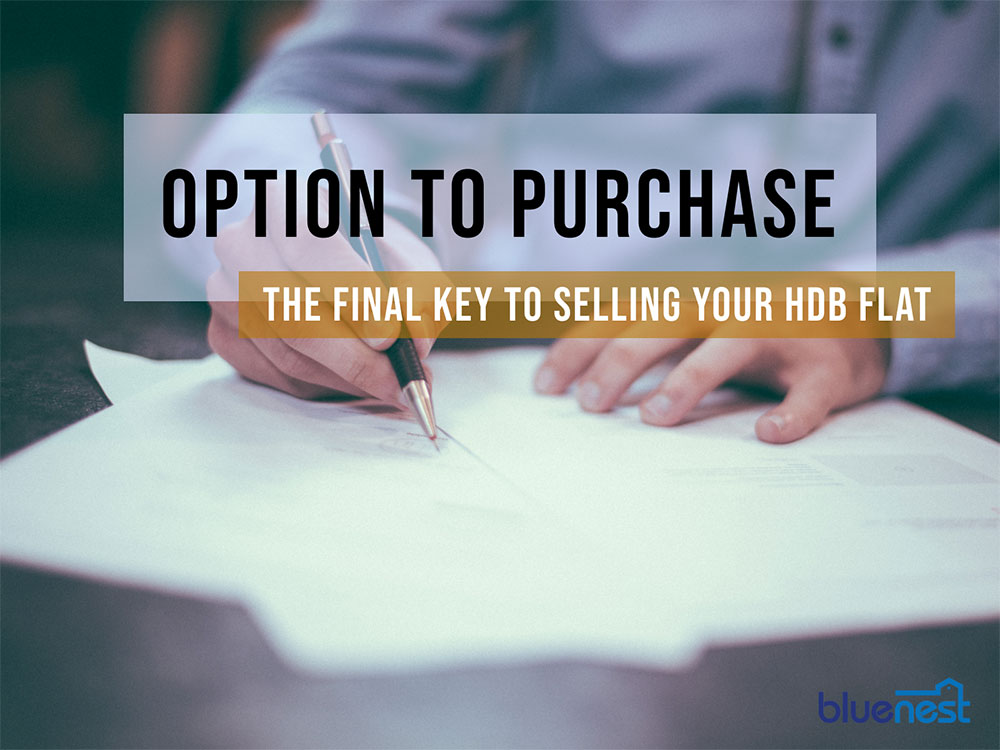
First time selling your HDB flat? After finding a buyer and negotiating a satisfactory selling price, you’ll prepare a document called the Option to Purchase (OTP). As property transactions deal with high-value assets, the OTP preparation process is rather stringent and leaves no space for ambiguity.
(Read also: The Full HDB Resale Timeline [With all the Costs and Steps!])
Here’s all you need to know about preparing the Option to Purchase (OTP) agreement in Singapore:
In Singapore, the OTP refers to a legally-binding contract that you (the seller) sign with your buyer after agreeing on a selling price for your HDB flat.
This legalizes your buyer’s interest to purchase the flat and reserves the flat for him/her until full payment is made.
For resale HDB flats, there’s a standard OTP agreement you’ll download and issue to your buyer. (Private properties, however, don’t follow this agreement.)
If you haven’t done so already, you’ll need to register your Intent To Sell on the HDB Resale Portal. Even then, you can’t rush into granting an OTP: there’s a 7-day cooling period to ensure both you and your buyers have sufficient time to think through your decision.
Once you’ve done so, you’ll be able to download the OTP directly from the HDB Resale Portal:

After the 7-day cooling period, you can grant your OTP! Here are a few important details to take note of:
You’ll need to fill in the following information on the OTP:
| Page 1 | Page 8 |
|
|
Your buyers have 21 calendar days to decide whether to exercise the OTP. The hard deadline is always on the 21st day at 4pm. Once your buyers exercise their Option to Purchase, you’ll fill in the following information on specific sections of the OTP:
The Option Exercise Fee (separate from the Option Fee previously paid to you). The amount payable is decided between you and your buyer, but the Option Fee + Option Exercise Fee shouldn’t be above $5,000.
The number of days between the date your buyers exercised the option and the date you and your buyers will submit the HDB Resale Application.
The signatures of all parties involved in the transaction and the witness (a Singaporean Citizen/PR who’s not involved in the transaction, such as your property agent).
You’re almost there. Upon signing the OTP, the buyers should hand you a deposit (Option Fee + Option Exercise Fee, totaling no more than $5,000).
Then, both parties will have to submit the HDB Resale Application (a complete how-to guide can be found here).
There are a few reasons that buyers choose not to exercise the OTP. These may include:
Regardless of their reasons, you’ll have to wait for the Option to Purchase to expire before issuing an OTP to another buyer. However, you can keep your buyer’s Option Fee as compensation.
Don’t lose heart even if your buyer chooses not to exercise the option. Instead, take this as an opportunity to make a few changes to your HDB flat, which may help you sell it faster (and at a higher price). You might also want to engage the help of a better agent, since it may be that your previous agent didn’t conduct a thorough check on your buyer’s financials beforehand.
Either party can back out after the OTP has been exercised, but not without cost.
If you (the HDB flat seller) are the one backing out, you’ll have to return the deposit to the buyer. On top of that, the buyer has legal grounds to file a case against you — and they can even compel you to follow through with the transaction.
If the buyer backs out after exercising the OTP, they may have to compensate you in several ways as well. For instance, if you engaged an agent and are liable to pay him commissions from the sale, the buyer will have to cover the bill — though ideally a good agent would’ve done his due diligence and checked that the buyer had both the means and intention to go through with the purchase.
Bottom line: You can’t back out without a proper reason. The court will hear from both sides and determine whether you’re allowed to renege on your contractual obligations. Even if you or your buyers successfully renege, the requesting party may be required to compensate for costs incurred, like the buying of furniture, storage, and living expenses.
Was this article helpful? Good things must share!
Thanks! Do hope it is useful for you 🙂